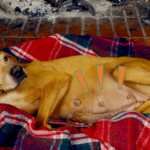Do Dogs Have Menopause
Dogs are some of the most loyal and loving creatures on the planet. They are our companions, protectors, and even helpers. But as they age, many dog owners wonder if their furry friends experience something similar to human menopause.
Menopause is a natural biological process that marks the end of a woman’s reproductive years. During this time, women experience a range of physical and emotional changes due to hormonal shifts. But do dogs have menopause? Let’s take a closer look.
What is Menopause?
Before we dive into whether or not dogs have menopause, let’s first explore what it is. Menopause typically occurs in women between the ages of 45 and 55, although it can happen earlier or later. It marks the end of a woman’s menstrual cycle and the decline in hormone production from the ovaries.
During this time, women may experience symptoms such as hot flashes, night sweats, mood swings, sleep disturbances, vaginal dryness, and decreased libido. These symptoms can last for several years before subsiding.
But do dogs go through something similar? The short answer is no dogs do not go through menopause in the same way that humans do.
Dogs and Reproductive Cycles
While dogs do not experience menopause like humans do, they do go through unique reproductive cycles throughout their lives. Female dogs typically start their reproductive cycles around six months of age and continue until they are approximately eight years old.
During this time, female dogs will come into heat or estrus approximately twice per year. This means that their bodies are ready to mate and reproduce. If a female dog does not become pregnant during her heat cycle, she will eventually go out of heat until her next cycle comes around.
As female dogs get older, their reproductive cycles may become less frequent or stop altogether. However, this is not due to hormonal changes like menopause in humans. Instead, it is simply a natural part of the aging process.
What Happens to Male Dogs?
Male dogs do not go through any sort of menopause or reproductive decline as they age. Instead, they are capable of reproducing well into their senior years. However, as male dogs age, their fertility may decrease and their sperm count may decrease as well.
It is important to note that even though male dogs can continue to reproduce, it does not mean that they should. Breeding older male dogs can increase the risk of genetic abnormalities and other health issues in their offspring.
Signs of Aging in Dogs
While dogs do not experience menopause like humans do, they do experience physical and emotional changes as they age. Some common signs of aging in dogs include:
– Decreased activity levels
– Increased sleeping
– Decreased appetite
– Weight gain
–



